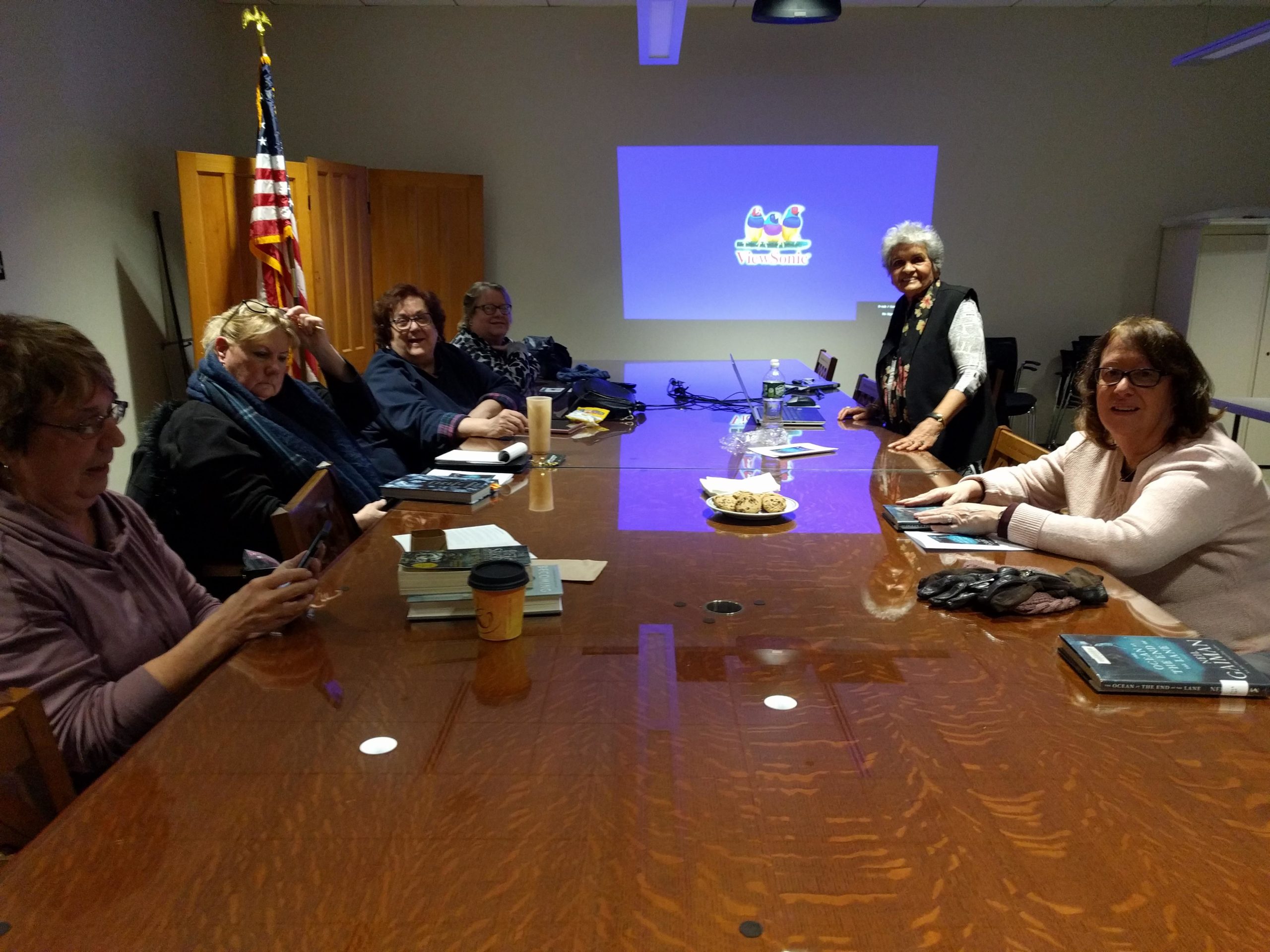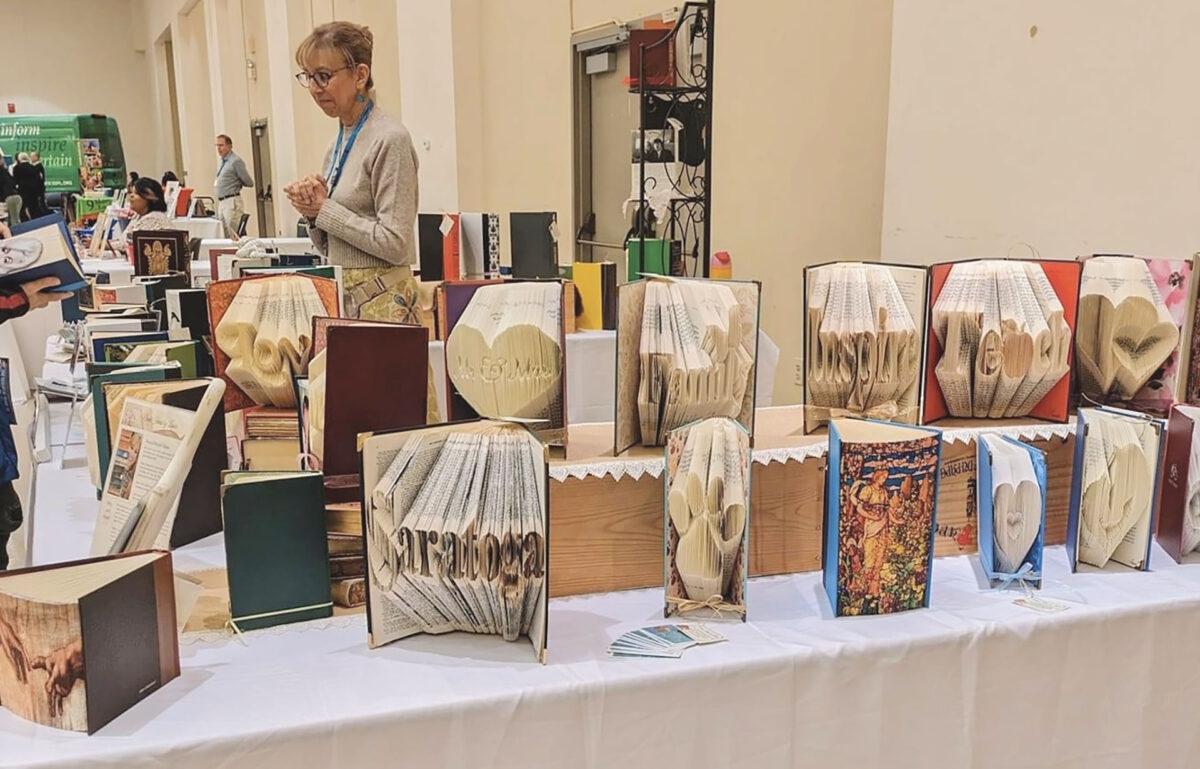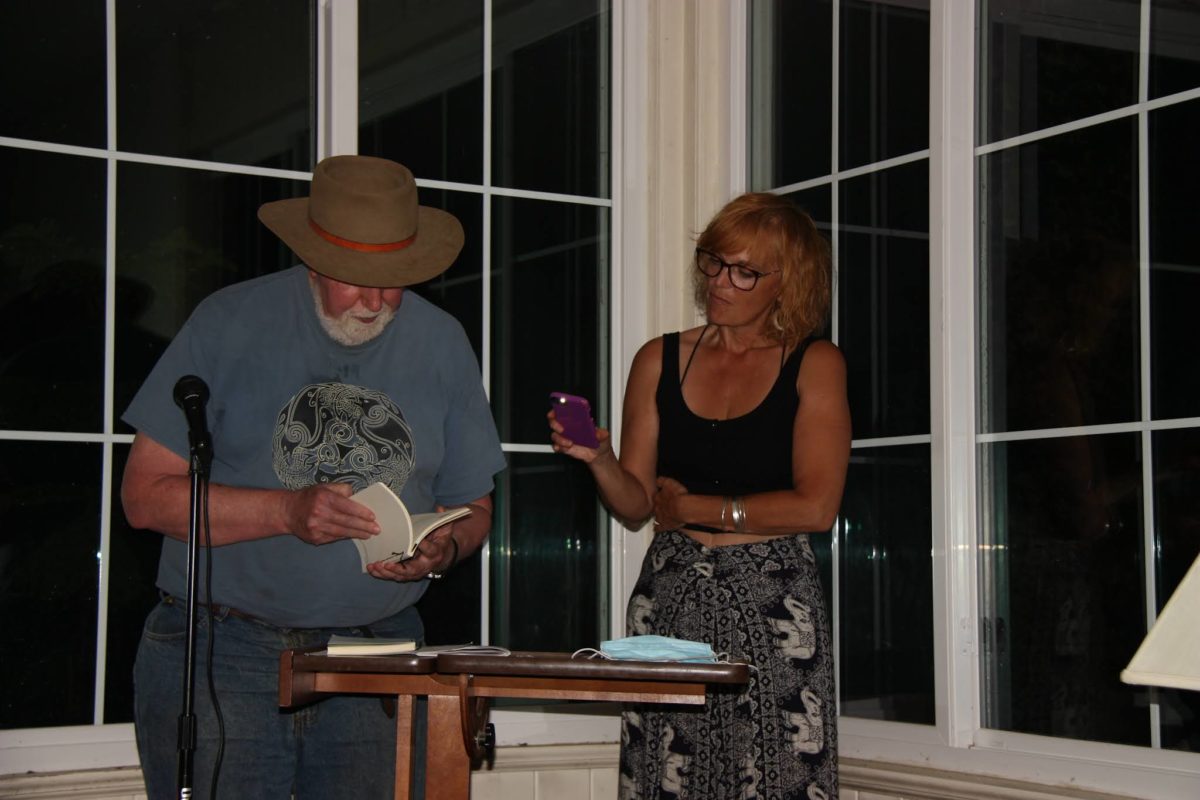By R. Cade
The Clifton Park-Halfmoon Public Library hosts a monthly book club for adults in the Piracci Board Room. On the evening of Tuesday, February 11 at 7:00 PM, the group met to discuss Neil Gaiman’s 2013 novel, The Ocean at the End of the Lane.
Members began filtering into the board room starting at around 6:45. As they entered, they began to discuss the novel informally. The atmosphere was cordial and welcoming; smiles and laughter accompanied the conversations. The group had diverse backgrounds including: school teachers, librarians, real estate professionals, retirees, and more. Nine members of the book club were in attendance.
The group leader, a librarian at Saratoga Public Library, brought a plate of cookies and distributed one-sheet pamphlets to the group. These pamphlets were printed with several discussion questions about the book, a quotation from the author, and a list of authors who have influenced Gaiman’s work. The pamphlet also included a brief bibliography of Gaiman’s publications and a notice of his upcoming appearance at Proctors Theater on April 19 at 7:30 PM.
The discussion began with an invitation for members to offer opening thoughts. Several members shared their overall impressions of the book as a modern fable or fairy tale and remarked on major themes of the book such as an adult’s perspective on childhood fears. Those who had read the book in years past described the value they got from a second reading. The group leader acted as a facilitator, but the discussion was driven by the members, each commenting to his or her own level of comfort. Everyone spoke up at some point during the evening, but a few were content to mostly listen, and there was no pressure put on anyone to participate. The discussion was bolstered by comments valuing what other members brought to the table in terms of experience with the material and their own personal interpretations. The pace of discussion was relaxed, occasionally punctuated by pauses as members absorbed the discussion. The leader kept the flow of discussion going by posing questions from the pamphlet to the table as they became relevant or the discussion lulled.
The prepared discussion questions examined motifs, such as the significance of water in the story, and the novel’s relationship to external mythopoeic structures, like the maiden-mother-crone cross-cultural dynamic or fairy-tale structure. Several of these questions invited speculation from group members about the unexplained circumstances in the novel or unstated character motivations. The resulting conversation included a nuanced examination of the novel. Particular individual knowledge contributed to the value of the discussion; at one point, a group member described her exploration of the etymology of a character’s name as formative to her understanding of the character’s role in the story. Personal experiences added to everyone’s interpretations, and at times the conversation strayed from the book to personal reminiscence. Regardless of the direction the discussion took it was all informed by the examination of the book, and neatly returned to the topic at hand. The discussions prompted by the questions were as interesting as any I have encountered in my college literature classes.
Group leadership operates on a rotational basis with a different librarian hosting each month. The book for each meeting is announced well in advance. The next meeting will be held on March 10 to discuss Michelle Obama’s 2018 memoir, Becoming. The public is invited to attend on a drop-in basis, and new members are always welcome.






